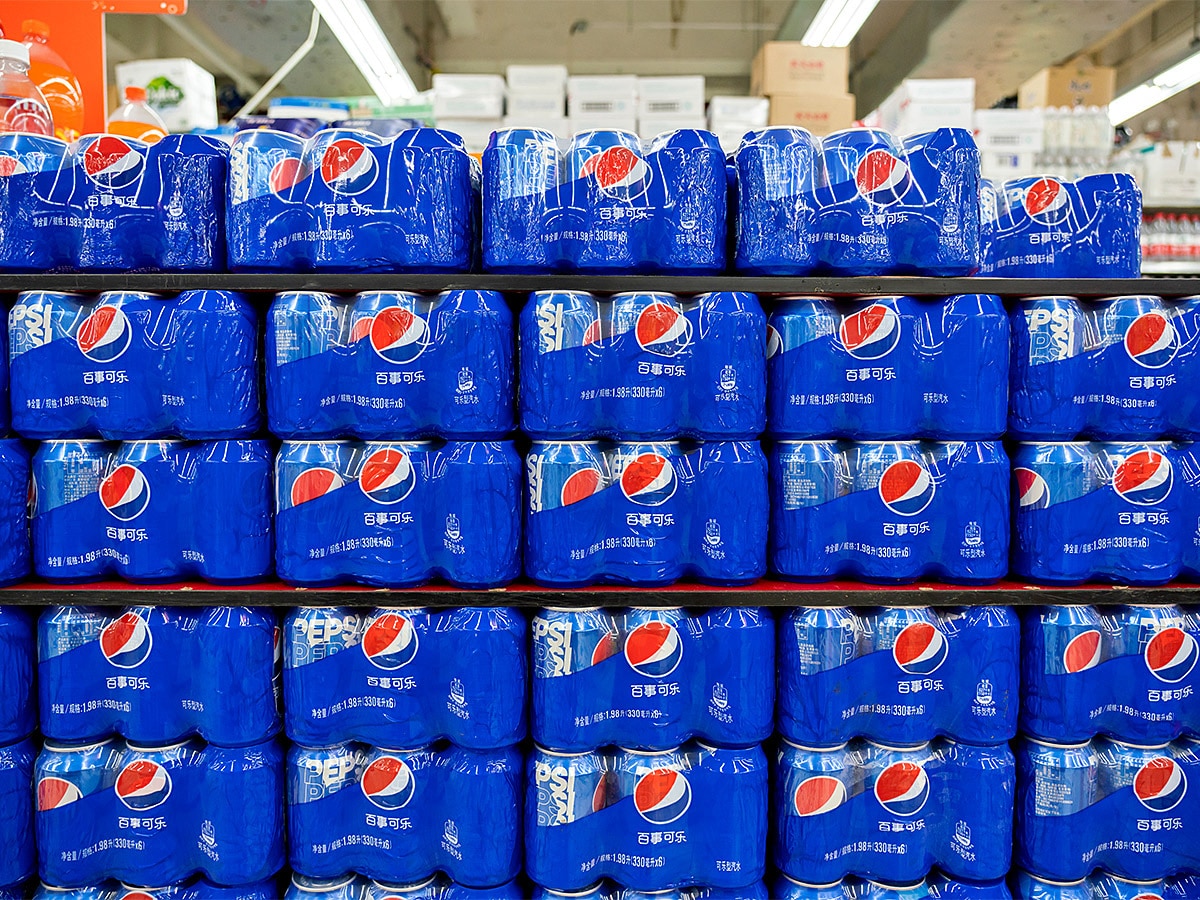Over the past couple of weeks the Pepsi share price has climbed 3.5%, giving the company momentum before its earnings on 12 July. After beating expectations in the first quarter, these results are expected to be strong. However, there are also several headwinds facing the group, which could lead to a more disappointing performance.
PepsiCo [PEP] has established itself as one of the leading S&P 500 stocks, and over the past 10 years it has delivered returns of 227.4%. Over the past year, the drinks manufacturer has also outperformed the S&P 500, rising 17.8% to 8 July, in comparison with a 9.8% decline in the S&P 500. This has been driven by very strong financial results, alongside the company’s defensive business model.
Ahead of the company’s second-quarter results announcement on 12 July, investor sentiment is fairly strong. This has been demonstrated by the 3.5% rise in the Pepsi share price over the past two weeks (through 8 July). This rise means that Pepsi is only 2.5% off its all-time high at the start of the year. However, inflationary pressures and the rising cost of living may lead to potential issues for the group.
What do analysts expect in the Q2 trading update?
According to 18 analysts polled by Yahoo Finance, analysts are expecting Pepsi to report earnings per share of $1.74 and revenues of $19.51bn. In the same period last year, the group reported earnings per share of $1.72. However, this performance far exceeded expectations, with Wall Street predicting earnings per share of $1.53 for the period. Revenues were expected to total $17.96bn, yet the company managed to report $19.22bn. This highlights that Pepsi may also be able to exceed expectations for the upcoming period.
However, there are many problems facing the company, which could lead to a more disappointing performance. Firstly, inflationary pressures are likely to increase costs, which may strain profit margins. Secondly, as noted by Pepsi in its first-quarter trading update in April, it expects a two-percentage-point foreign exchange translation headwind for the full year. This may be a headwind that impacts both net revenues and profits in Q2.
How has Pepsi’s recent performance looked?
So far, Pepsi has managed to overcome many macroeconomic challenges and has been reporting excellent results. For example, in Q1, it saw net revenue growth of 9.3% year-over-year, while earnings per share reached $3.06, a 148% change year-over-year. The large increase in earnings per share was mainly due to the sale of Tropicana, Naked and other group brands for $3.3bn. However, without this transaction, the group still reported core earnings per share of $1.29, a 7% year-over-year increase.
Most importantly, Pepsi also upgraded its expectations for the full-year 2022. It now expects to deliver 8% organic revenue growth, against previous guidance of 6%. In addition, core earnings per share are expected to reach $6.63, which is 6% higher than the core earnings per share reported in 2021 of $6.26.
What’s next for the Pepsi share price?
For income seekers, Pepsi offer a strong and reliable dividend, which yields 2.7%. This dividend has also seen strong growth recently, experiencing a 7% increase after the 2021 results. This was the group’s 50th consecutive annual increase, demonstrating its reliability. At the same time, the board also authorised a share repurchase programme of up to $10bn through to February 2026. In 2022, it is expected that Pepsi will repurchase around $1.5bn of its own stock, which should reduce the number of outstanding shares and boost metrics like earnings per share.
Analysts are also moderately confident about the future for the Pepsi share price. In fact, JP Morgan recently maintained its ‘overweight’ rating for the company, while at the end of April, Guggenheim upped its price target from $188 to $193. According to the Wall Street Journal, the company currently has 10 ‘buy’ ratings, 10 ‘hold’ ratings and one ‘sell’ rating. It also has a price target of $182.50, giving an upside of 6.2% from its close on 8 July.
Disclaimer Past performance is not a reliable indicator of future results.
CMC Markets is an execution-only service provider. The material (whether or not it states any opinions) is for general information purposes only, and does not take into account your personal circumstances or objectives. Nothing in this material is (or should be considered to be) financial, investment or other advice on which reliance should be placed. No opinion given in the material constitutes a recommendation by CMC Markets or the author that any particular investment, security, transaction or investment strategy is suitable for any specific person.
The material has not been prepared in accordance with legal requirements designed to promote the independence of investment research. Although we are not specifically prevented from dealing before providing this material, we do not seek to take advantage of the material prior to its dissemination.
CMC Markets does not endorse or offer opinion on the trading strategies used by the author. Their trading strategies do not guarantee any return and CMC Markets shall not be held responsible for any loss that you may incur, either directly or indirectly, arising from any investment based on any information contained herein.
*Tax treatment depends on individual circumstances and can change or may differ in a jurisdiction other than the UK.
Continue reading for FREE
- Includes free newsletter updates, unsubscribe anytime. Privacy policy





